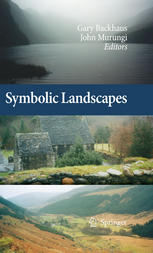

Most ebook files are in PDF format, so you can easily read them using various software such as Foxit Reader or directly on the Google Chrome browser.
Some ebook files are released by publishers in other formats such as .awz, .mobi, .epub, .fb2, etc. You may need to install specific software to read these formats on mobile/PC, such as Calibre.
Please read the tutorial at this link: https://ebookbell.com/faq
We offer FREE conversion to the popular formats you request; however, this may take some time. Therefore, right after payment, please email us, and we will try to provide the service as quickly as possible.
For some exceptional file formats or broken links (if any), please refrain from opening any disputes. Instead, email us first, and we will try to assist within a maximum of 6 hours.
EbookBell Team

5.0
100 reviewsSymbolic Landscapes presents a definitive collection of landscape/place studies that explores symbolic, cultural levels of geographical meanings. Essays written by philosophers, geographers, architects, social scientists, art historians, and literati, bring specific modes of expertise and perspectives to this transdisciplinary and interdisciplinary study of the symbolic level human existential spatiality. Placing emphasis on the pre-cognitive genesis of symbolic meaning, as well as embodied, experiential (lived) geography, the volume offers a fresh, quasi-phenomenological approach.
The editors articulate the epistemological doctrine that perception and imagination form a continuum in which both are always implicated as complements. This approach makes a case for the interrelation of the geography of perception and the geography of imagination, which means that human/cultural geography offers only an abstraction if indeed an aesthetic geography is constituted merely as a sub-field. Human/cultural geography can only approach spatial reality through recognizing the intimate interrelative dialectic between the imaginative and perceptual meanings of our landscapes/place-worlds. This volume reinvigorates the importance of the topic of symbolism in human/cultural geography, landscape studies, philosophy of place, architecture and planning, and will stand among the classics in the field.